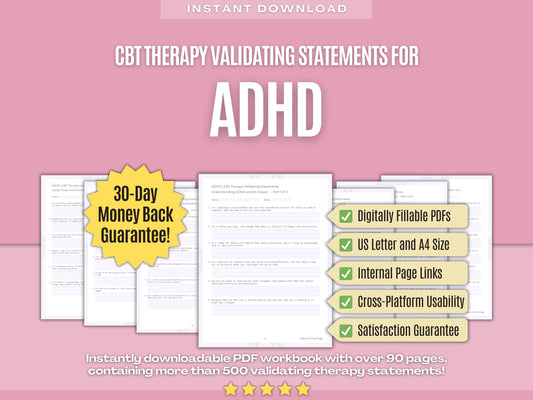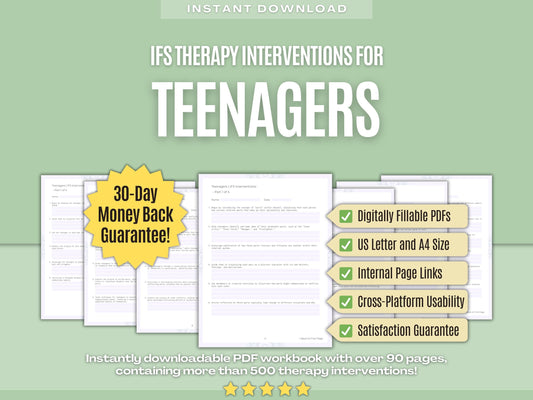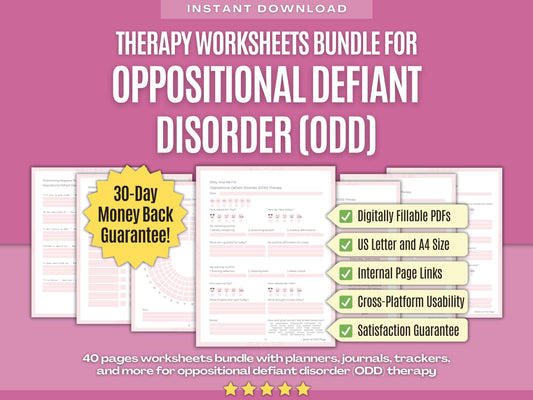Elevate Your Therapy and Guide Your Clients to Inner Healing with Our Bulimia Therapy Progress Notes! ✨
1. Beginning Therapy for Bulimia
- During today's session, we initiated the process of therapy for bulimia nervosa.
- We discussed the client's history with bulimia, including onset, duration, and severity of symptoms.
- We reviewed the diagnostic criteria for bulimia nervosa and discussed how it applies to the client's experiences.
- We explored the client's current coping mechanisms and discussed their effectiveness in managing bulimic urges.
- We discussed the therapeutic approach we will be using, including cognitive-behavioral techniques, nutritional counseling, and psychoeducation.
- We addressed any questions or uncertainties the client had about the therapy process and what to expect moving forward.
- We explored the client's support system and identified individuals who may be involved in their treatment and recovery.
- We discussed the importance of establishing a collaborative and trusting therapeutic relationship to facilitate progress in treatment.
- We discussed strategies for managing cravings and urges to binge or purge, including distraction techniques and coping skills.
- We reviewed the confidentiality and privacy policies governing our therapy sessions to ensure the client feels comfortable sharing openly.
- We discussed the potential challenges and setbacks the client may encounter during their recovery journey and how to address them effectively.
Need more? Find all 500+ Therapy Progress Notes for Bulimia Therapy in our Digital Workbook!
2. Bulimia Psychoeducation
- Today's session focused on providing psychoeducation about bulimia nervosa.
- We discussed the prevalence of bulimia and its impact on individuals' physical and psychological well-being.
- We explored the cycle of bingeing and purging in bulimia and how it can become reinforcing over time.
- We discussed the psychological effects of bulimia, such as low self-esteem, depression, and anxiety.
- We explored the societal pressures and media influences that contribute to unrealistic body ideals and promote disordered eating patterns.
- We discussed the importance of seeking timely treatment for bulimia to prevent further physical and psychological harm.
- We explored the evidence-based approaches used in bulimia therapy, such as cognitive-behavioral therapy (CBT), dialectical behavior therapy (DBT), and interpersonal therapy (IPT).
- We discussed the role of medication, such as antidepressants, in managing co-occurring mood disorders and reducing bulimic symptoms.
- We explored the concept of body acceptance and self-compassion as essential components of bulimia recovery.
- We discussed strategies for challenging distorted thoughts and beliefs related to body image and food.
- We explored the concept of mindful eating and its role in promoting healthier eating behaviors and body awareness.
Need more? Find all 500+ Therapy Progress Notes for Bulimia Therapy in our Digital Workbook!
3. Mindfulness Techniques for Bulimia
- In today's session, we introduced mindfulness techniques as a tool for managing bulimic behaviors.
- We discussed the concept of mindfulness and its application in eating disorder treatment, emphasizing present-moment awareness and nonjudgmental acceptance.
- We practiced mindfulness exercises focused on mindful breathing to anchor attention to the present moment and cultivate a sense of calm.
- We explored the role of mindfulness in recognizing and disengaging from automatic thoughts and urges associated with bulimia.
- We discussed the concept of urge surfing, where clients learn to ride out cravings and urges without acting on them impulsively.
- We explored the use of mindfulness in managing emotional dysregulation and reducing the intensity of negative emotions that may trigger bingeing or purging.
- We discussed the importance of integrating mindfulness into daily life outside of therapy sessions to reinforce its benefits and promote long-term habituation.
- We explored the potential barriers to practicing mindfulness regularly and brainstormed strategies to overcome them.
- We discussed the benefits of incorporating mindfulness into mealtime rituals to promote mindful eating and enjoyment of food without judgment or guilt.
- We explored the connection between mindfulness and improving body image by cultivating self-acceptance and gratitude for the body's abilities.
- We discussed the potential challenges and setbacks the client may encounter while integrating mindfulness into their recovery journey and how to address them with compassion and perseverance.
Need more? Find all 500+ Therapy Progress Notes for Bulimia Therapy in our Digital Workbook!
4. Dialectical Behavior Therapy (DBT) for Bulimia
- Today's session focused on introducing dialectical behavior therapy (DBT) techniques for the treatment of bulimia nervosa.
- We discussed the dialectical philosophy of DBT, which emphasizes finding a balance between acceptance and change.
- We practiced mindfulness exercises to increase awareness of present-moment experiences and reduce reactivity to distressing thoughts and emotions.
- We discussed emotion regulation strategies to identify and label emotions, understand their function, and develop healthier ways of coping with them.
- We explored the role of interpersonal effectiveness in improving communication and relationships, which can reduce feelings of isolation and shame associated with bulimia.
- We discussed the use of dear man, give, and fast techniques to negotiate conflicts and make requests assertively while maintaining self-respect and relationships.
- We explored the concept of dialectics in DBT, which involves finding the middle path between opposing perspectives or goals.
- We discussed the importance of radical acceptance in acknowledging reality and letting go of judgments or resistance to painful experiences related to bulimia.
- We explored the use of pros and cons lists to weigh the short-term and long-term consequences of engaging in bulimic behaviors versus using DBT skills.
- We discussed the role of mindfulness in reducing emotional reactivity and increasing distress tolerance, which can prevent impulsive behaviors such as bingeing and purging.
- We reviewed homework assignments and progress made in applying DBT skills between sessions, reinforcing successes and troubleshooting challenges.
Need more? Find all 500+ Therapy Progress Notes for Bulimia Therapy in our Digital Workbook!
5. Interpersonal Therapy (IPT) for Relationship Impact
- Today's session focused on implementing interpersonal therapy (IPT) techniques to address the impact of bulimia on relationships.
- We discussed the core principles of IPT, which focuses on the connections between mood, interpersonal relationships, and life events.
- We explored the interpersonal inventory, which involves assessing the client's current social support network and identifying areas of strength and areas for improvement.
- We discussed the role of communication patterns in maintaining or exacerbating interpersonal conflicts related to bulimic behaviors.
- We practiced assertiveness training to help the client express their needs, preferences, and boundaries effectively in relationships without resorting to passive or aggressive communication.
- We discussed the impact of social isolation and withdrawal on the client's mood and well-being and explored strategies for reconnecting with others and rebuilding social support networks.
- We explored the concept of grief and loss in relation to the client's bulimia, including the loss of trust, intimacy, and connection with loved ones.
- We discussed the importance of boundaries in relationships and how setting clear boundaries can help protect the client's recovery and well-being.
- We explored strategies for establishing and maintaining healthy boundaries with family members, friends, and romantic partners to protect the client's recovery and promote self-care.
- We discussed the potential benefits of involving family members or loved ones in therapy sessions to improve communication, resolve conflicts, and strengthen support networks.
- We reviewed progress made in implementing IPT techniques and discussed any challenges or barriers the client encountered in improving their interpersonal relationships.
Need more? Find all 500+ Therapy Progress Notes for Bulimia Therapy in our Digital Workbook!
6. Emotion-Focused Therapy (EFT) for Emotional Eating
- Today's session centered on implementing emotion-focused therapy (EFT) techniques to address emotional eating patterns associated with bulimia nervosa.
- We discussed the core principles of EFT, which emphasize the importance of identifying and processing underlying emotions to facilitate healing and transformation.
- We explored the connection between specific emotions, such as sadness, anger, anxiety, or shame, and the urge to engage in bingeing or purging behaviors.
- We discussed the concept of emotional avoidance and how it contributes to the cycle of emotional eating and reinforces feelings of shame and guilt.
- We explored the client's emotional history and early experiences with emotions, including messages received from family, peers, or society about the expression and validity of emotions.
- We discussed the role of self-compassion in responding to difficult emotions with kindness and understanding rather than self-criticism or judgment.
- We explored the concept of emotional processing and how expressing, validating, and making sense of one's emotions can lead to emotional healing and resolution.
- We discussed the importance of building emotional resilience and coping skills to navigate life's challenges without resorting to maladaptive coping strategies such as emotional eating.
- We explored the concept of emotional validation and the therapeutic relationship as a safe and supportive space for validating the client's emotional experiences.
- We discussed the potential benefits of integrating expressive arts or creative therapies, such as art therapy, music therapy, or movement therapy, into the client's emotional healing process.
- We reviewed progress made in developing emotion regulation skills and coping strategies between sessions and discussed any challenges or setbacks encountered.
Need more? Find all 500+ Therapy Progress Notes for Bulimia Therapy in our Digital Workbook!
7. Psychodynamic Approaches for Deep Insights
- Today's session focused on implementing psychodynamic approaches to gain deep insights into the client's experience with bulimia nervosa.
- We discussed the core principles of psychodynamic therapy, which emphasize uncovering unconscious conflicts, exploring early life experiences, and understanding relational dynamics.
- We explored the client's early childhood experiences, family dynamics, and attachment patterns to understand how they may influence their relationship with food and body image.
- We discussed the concept of transference, where the client's feelings and attitudes towards significant others are transferred onto the therapist, and how it may manifest in therapy.
- We explored the role of defense mechanisms, such as denial, projection, and rationalization, in protecting the client from painful emotions and conflicts related to their bulimia.
- We discussed the concept of the unconscious mind and how it influences thoughts, behaviors, and emotional responses.
- We explored the client's internalized object relations, which are the mental representations of self and others formed through early relationships.
- We discussed the role of early trauma or adversity in shaping the client's self-concept, coping strategies, and relationship with food.
- We discussed the therapeutic relationship as a microcosm of the client's interpersonal patterns and dynamics.
- We explored the concept of repetition compulsion and how it may manifest in the client's repetitive patterns of behavior related to their bulimia.
- We discussed the potential benefits of integrating psychodynamic insights into the client's treatment plan and therapeutic process.
Need more? Find all 500+ Therapy Progress Notes for Bulimia Therapy in our Digital Workbook!
8. Music Therapy for Emotional Release
- Today's session focused on utilizing music therapy as a tool for emotional release in the treatment of bulimia nervosa.
- We discussed the core principles of music therapy, which emphasize the use of music to express and regulate emotions, promote self-awareness, and facilitate communication.
- We explored different genres of music and identified songs or musical pieces that resonate with the client's emotions and experiences.
- We discussed the concept of music as a form of nonverbal communication and how it can provide a safe and accessible means of expressing complex emotions.
- We explored the client's personal musical preferences and how they may reflect their emotional state and inner world.
- We discussed the therapeutic value of improvisation in music therapy, which allows the client to express themselves freely and spontaneously without the pressure of perfection.
- We discussed the concept of music-assisted relaxation and how listening to calming music can promote relaxation, stress reduction, and emotional regulation.
- We explored the role of rhythm and movement in music therapy and how rhythmic activities can help release tension, energize the body, and promote emotional expression.
- We discussed the potential benefits of using music as a tool for grounding and mindfulness, helping the client stay present and focused on their emotions and sensations.
- We explored the concept of music as a form of self-care and how engaging in musical activities can promote self-soothing, relaxation, and overall well-being.
- We reviewed progress made in using music therapy as a tool for emotional release and discussed any insights or shifts in perspective.
Need more? Find all 500+ Therapy Progress Notes for Bulimia Therapy in our Digital Workbook!
9. Wrapping Up Therapy Sessions
- Today's session focused on wrapping up our therapy sessions and reflecting on the progress made in the treatment of bulimia nervosa.
- We discussed the goals set at the beginning of therapy and reviewed the progress made towards achieving them.
- We explored any unresolved issues or challenges that may still require attention as therapy comes to a close.
- We discussed the importance of maintaining self-care practices and coping strategies learned in therapy to support ongoing recovery.
- We discussed the potential for relapse and developed a relapse prevention plan to address any potential triggers or setbacks.
- We explored the client's support network and identified sources of ongoing support and encouragement.
- We discussed the possibility of transitioning to maintenance sessions or periodic check-ins to monitor progress and address any emerging issues.
- We discussed the importance of self-compassion and acceptance in the recovery process, emphasizing the client's inherent worth and dignity.
- We reviewed any resources or referrals provided during therapy to support the client's ongoing well-being.
- We discussed the potential for setbacks or challenges in the future and developed strategies to address them proactively.
- We celebrated the progress made in therapy and acknowledged the client's resilience and determination.
Need more? Find all 500+ Therapy Progress Notes for Bulimia Therapy in our Digital Workbook!
10. Final Session Reflections
- Today marks the culmination of our therapeutic journey together, and it's important to reflect on the progress made since our first session.
- Your commitment to this process has been evident in your willingness to explore difficult emotions and challenge maladaptive behaviors.
- You've demonstrated remarkable resilience in facing setbacks and utilizing coping strategies to navigate challenging moments.
- Your increased self-awareness has empowered you to recognize triggers and implement healthier coping mechanisms.
- Through our sessions, you've gained insight into the role of perfectionism and self-esteem in perpetuating your bulimic behaviors.
- Your openness to exploring deeper emotions has fostered healing and allowed for greater emotional freedom.
- Your dedication to practicing mindfulness and self-care has been instrumental in promoting overall well-being.
- It's inspiring to see how you've integrated insights from our sessions into your daily life, fostering lasting change.
- Reflecting on our collaborative work, I'm reminded of your strength and resilience in the face of adversity.
- Your willingness to challenge destructive patterns and embrace change has been central to your progress.
- Remember that recovery is a journey, and setbacks are a natural part of the process. What's important is your commitment to moving forward.
We hope that our therapy progress notes for Bulimia therapy will help you to elevate your therapy practice and guide your clients to inner healing! Do you need more therapy progress notes for Bulimia therapy? Find them all in our Digital Workbook! Or do you have any questions or suggestions for us? Please feel free to contact us at any time!


















